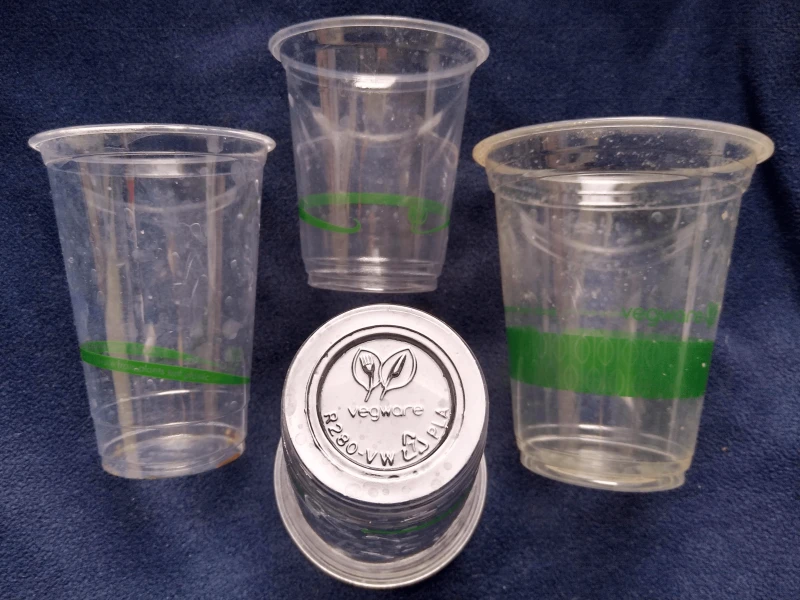Environmentally-friendly GMO bioplastics favored by consumers despite prevailing negative sentiment on GMO foods
Environmentally-friendly GMO bioplastics favored by consumers despite prevailing negative sentiment on GMO foods


The technology of genetically modified organisms (GMO) and especially genetically modified plants (GMP) applied in agriculture is a key element in a bioeconomy-based sustainability transition. However, consumers in many European countries allegedly disapprove of ‘green biotechnology’. Drawing on innovation adoption and risk perception literature, we explore the acceptance of GMP-based food packaging. Fossil-fuel-based production and plastic waste have become a major concern in many societies, and GMP-based technologies might offer solutions. Taking fully degradable material based on GMP as an example to replace conventional plastic in many applications, we present new insights into the GMP debate using a choice-based conjoint analysis in four European countries. Our results show that GMP-based packaging material is preferred to conventional plastic packaging in all countries.
We propose that GMP-based technology that could contribute to solutions for pressing environmental problems may have become more acceptable amongst the public than generally thought. Insights from the field of risk perception and of innovation adoption support this proposition. GMP-based technology might be seen as a less dreadful hazard when perceived as a tool to address more dreadful environmental problems. This may especially hold for people with a communitarian or egalitarian worldview who are particularly concerned about environmental problems and who see its advantages in the context of combating pollution.
This is an excerpt. Read the original post here

 | Videos | More... |

Video: Nuclear energy will destroy us? Global warming is an existential threat? Chemicals are massacring bees? Donate to the Green Industrial Complex!
 | Bees & Pollinators | More... |

GLP podcast: Science journalism is a mess. Here’s how to fix it

Mosquito massacre: Can we safely tackle malaria with a CRISPR gene drive?

Are we facing an ‘Insect Apocalypse’ caused by ‘intensive, industrial’ farming and agricultural chemicals? The media say yes; Science says ‘no’
 | Infographics | More... |

Infographic: Global regulatory and health research agencies on whether glyphosate causes cancer
 | GMO FAQs | More... |

Why is there controversy over GMO foods but not GMO drugs?

How are GMOs labeled around the world?

How does genetic engineering differ from conventional breeding?
 | GLP Profiles | More... |

Alex Jones: Right-wing conspiracy theorist stokes fear of GMOs, pesticides to sell ‘health supplements’




 Viewpoint — Fact checking MAHA mythmakers: How wellness influencers and RFK, Jr. undermine American science and health
Viewpoint — Fact checking MAHA mythmakers: How wellness influencers and RFK, Jr. undermine American science and health Viewpoint: Video — Big Solar is gobbling up productive agricultural land and hurting farmers yet providing little energy or sustainabilty gains
Viewpoint: Video — Big Solar is gobbling up productive agricultural land and hurting farmers yet providing little energy or sustainabilty gains Fighting deforestation with CO2: Biotechnology breakthrough creates sustainable palm oil alternative for cosmetics
Fighting deforestation with CO2: Biotechnology breakthrough creates sustainable palm oil alternative for cosmetics Trust issues: What happens when therapists use ChatGPT?
Trust issues: What happens when therapists use ChatGPT? 30-year-old tomato line shows genetic resistance to devastating virus
30-year-old tomato line shows genetic resistance to devastating virus California, Washington, Oregon forge immunization alliance to safeguard vaccine access against federal undermining
California, Washington, Oregon forge immunization alliance to safeguard vaccine access against federal undermining The free-range chicken dilemma: Better for birds, but with substantial costs
The free-range chicken dilemma: Better for birds, but with substantial costs ‘You have to treat the brain first’: Rethinking chronic pain with Sanjay Gupta
‘You have to treat the brain first’: Rethinking chronic pain with Sanjay Gupta
